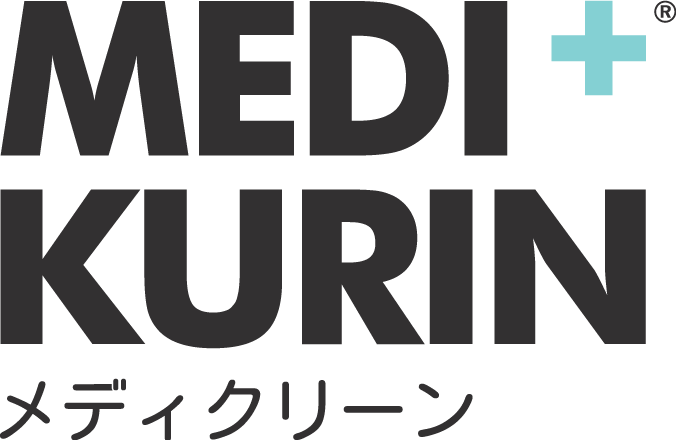Quaternary Ammonium Compounds and MEDIKURIN’s Hypochlorous Acid (HOCl), what are these “antibacterial” active ingredients all about?
Staying germ-free means you can stay worry-free as well, but sometimes conventional sanitizers aren’t all that safe. Back in May 2021, 18 alcohol-based hand sanitizers were recalled in Singapore due to the safety issues found in the concentrations of their solutions. Still, as hand sanitizers have become part of our daily routine, you would have noticed the drying and irritating effect it has from overuse. While we won’t deny the effectiveness of alcohol solutions, for many, switching to non-alcohol alternatives needs to be done to deal with their irritating and drying side-effects!
Firstly, what are Quaternary Ammonium Compounds?
Quaternary Ammonium Compounds (also known as “Quats”) are a group of chemicals that are used as antibacterial active ingredients in surface disinfectants or wipes. Usually, they are used in hospital settings to disinfect surgery rooms or industrial fumigation. They are also certified by EPA (U.S. Environmental Protection Agency) as a pesticide active substance.
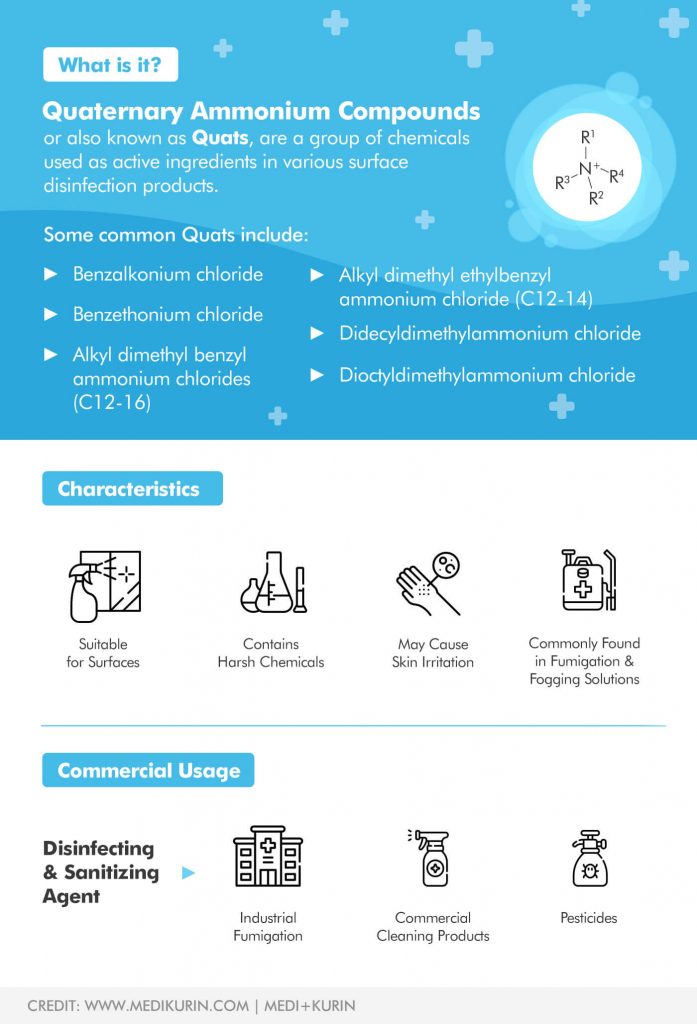
Quaternary Ammonium Compounds (Quats) are industrial disinfectants that are mostly used for surface cleaning.
What is Hypochlorous Acid?
Hypochlorous Acid (HOCl) is an active ingredient formulated from Electrolyzed Water Technology. This powerful ingredient is able to kill 99.9% of germs, bacteria, and viruses while leaving no harmful residues during or after application. HOCl is also released by the white blood cells of the human body’s immune systems when dealing with pathogens. Because of it’s non-toxic quality and high efficacy, HOCl solutions are popularly used in dental, healthcare, and agricultural disinfection.
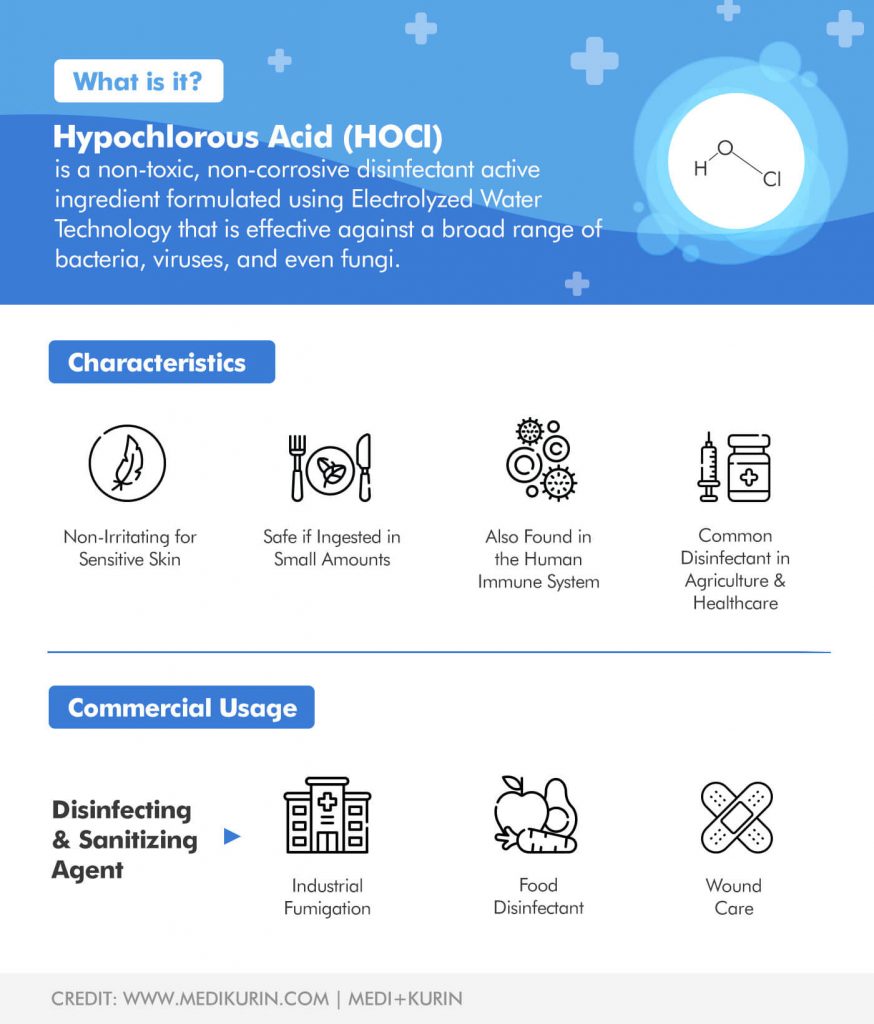
Hypochlorous Acid (HOCl) is a skin-friendly disinfectant that is safe for bare hands to be exposed to during the cleaning process.
Here are five things to consider when using non-alcohol sanitizers.
1. Non-alcohol disinfectants are commonly used for surface disinfection and not for the body or hand.
Non-alcohol disinfectants, such as solutions that use Quats are best reserved for surface disinfection. Quats are heavy-duty germ-killers that continue disinfecting long after the solution has dried up. Because of how they stay on surfaces and in the air long after application, you should only use these disinfectants in well-ventilated spaces. This is fine for surfaces you don’t come into contact with often, but it is not advisable to use them in areas that come into contact with your bare skin.
MEDIKURIN HOCl solutions have a wide range of applications. Like Quats, HOCl was originally used in the clinical setting to disinfect surgical equipment as well as clean up a patient’s oral cavity. What makes HOCl a powerful but safe choice is that HOCl solutions are generally safe for skin, if inhaled, and if accidentally ingested. In fact, HOCl solutions are also commonly used in the agricultural and food industry to disinfect and deodorize areas frequented by both humans and animals.
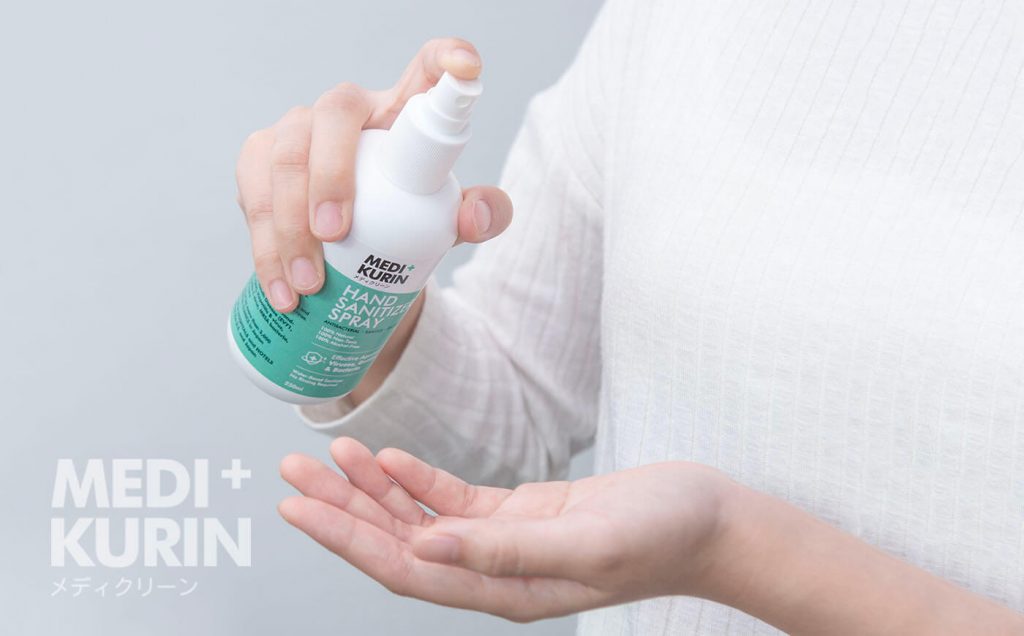
MEDIKURIN even has special HOCl formulations that are suited for use as hand sanitizers! Visit our MEDIKURIN Hand Sanitizer Spray to learn more.
2. Both Quats and HOCl solutions are generally odorless.
A plus point about Quats and MEDIKURIN HOCl solutions is that they are generally odorless solutions. Still, it should be noted that despite being an odorless solution, the residues left on surfaces after disinfections may not be safe if inhaled. Even if you don’t smell anything, prolonged exposure to these residues may not be good for you or other room occupants.
MEDIKURIN HOCl solutions are also odorless in nature, but give off a faint swimming pool scent when they break down bacteria, viruses, fungi, and spores on surfaces. Because we don’t use any harsh chemicals in our solution, coming into contact with the surface or solution itself wouldn’t cause any harm.
3. Unfortunately, not all non-alcohol solutions are eco-friendly.
However, despite its prevalence in many households, Quats might not be the safest or most eco-friendly option out in the market. For example, a review of multiple studies looking into one of the more common Quats, known as Benzalkonium Chloride, found that many regulatory boards agree that the antibacterial ingredient is highly toxic to both humans and animals in high concentrations or frequent exposure. High levels of exposure result in contact dermatitis, respiratory issues, and even infertility. You should also note that pouring high volumes of Quats down the drain or near a pond is likely to harm the environment around you in the long run. In MEDIKURIN, we believe that our products don’t have to forfeit sustainability to be effective. MEDIKURIN HOCl disinfectants are produced with natural ingredients that aren’t toxic to the environment, animals, and humans. You can use our sprays to clean indoor and outdoor surfaces, as well as disinfect your groceries. Not only can HOCl be used as food-grade disinfectant on kitchen surfaces, in Japan, other formulations of HOCl has been used as antimicrobial additives in food to fight off microorganisms that cause food spoilage!
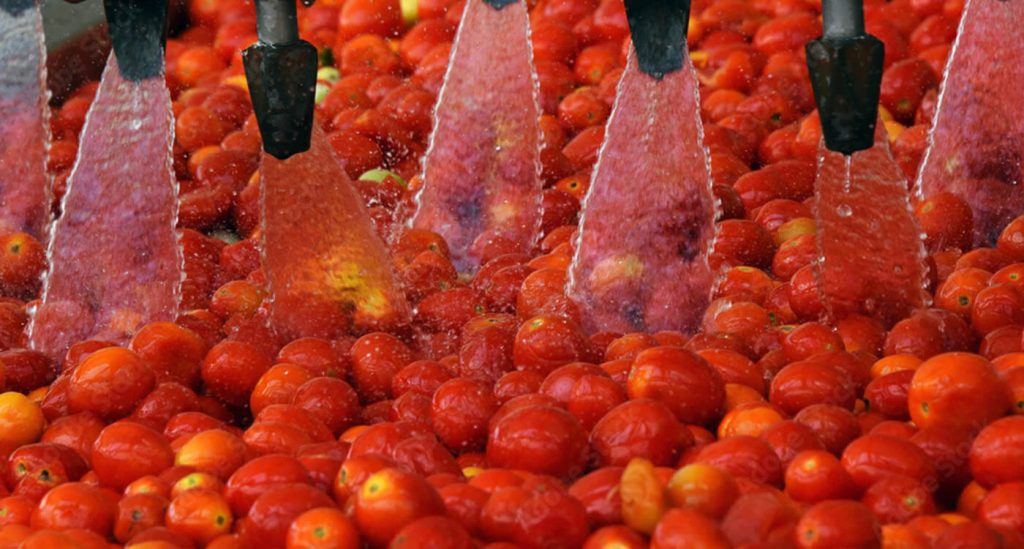
HOCl can also be found in the Food and Beverage Industry as part of their food disinfection solution to get rid of foodborne pathogens.
4. Not all non-alcohol based solutions are safe for skin contact.
While Quats are shown to be effective surface disinfectants on hard surfaces, they are not suitable to be used as hand sanitizers. Case in point, if you or your loved ones experience dry hands after doing hand washing or general cleaning in the home with products containing Quats, you could be allergic to the active antibacterial ingredient.
Business owners should also take note not to skimp on suitable sanitizers to offer their visitors and guests. If the hand sanitizer you provide at your entrance is too harsh, your visitors with sensitive skin might have a bad experience while browsing.
Benzalkonium Chloride is a known skin irritant that is likely to trigger and influence contact dermatitis. They also note that dry skin, blisters, and skin itchiness formed amongst frequent users of products with Benzalkonium Chloride. This side effect is common amongst health care workers, as well as people who suffer from eczema.
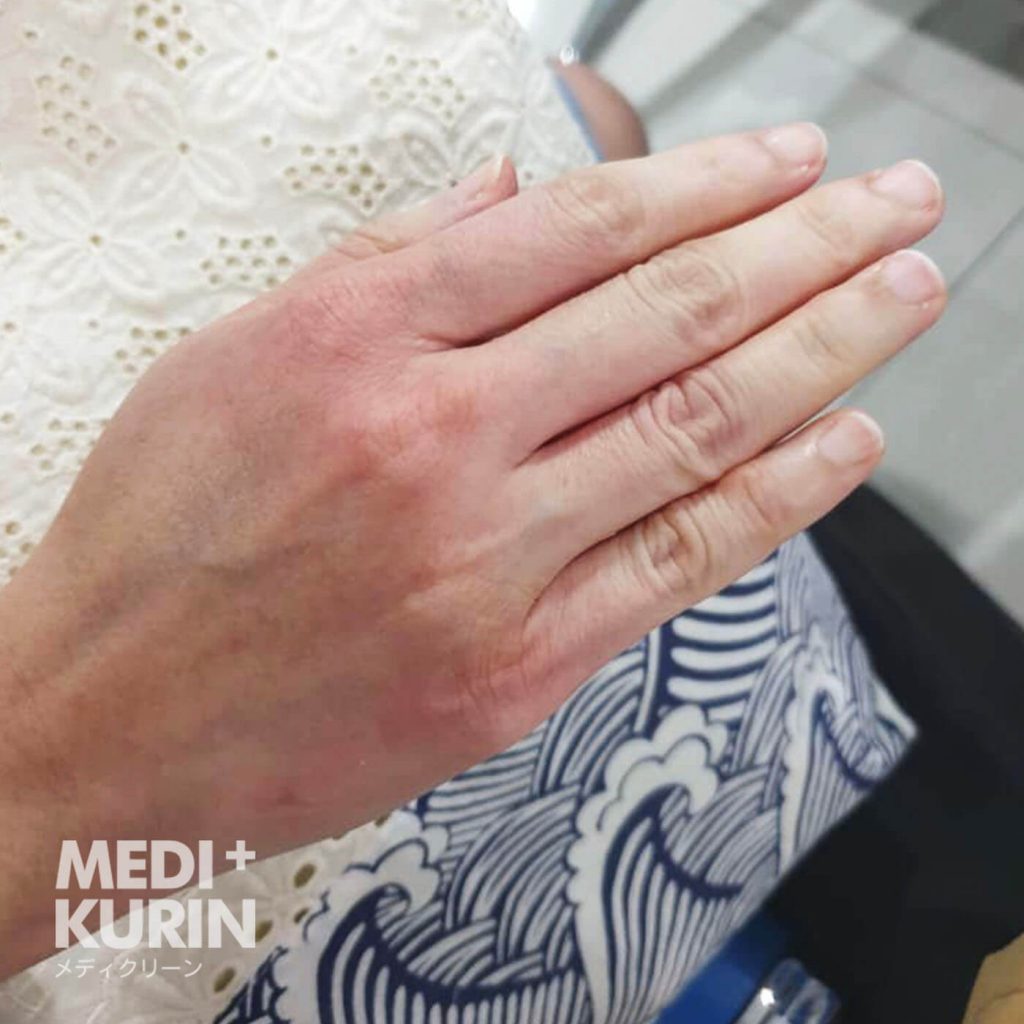
Incorrect use of a Benzalkonium Chloride surface disinfectant has led to this user having irritated skin. Always follow a disinfectant spray’s label in order to not risk allergic reactions to a product.
Switching to a HOCl-based solution is a better option for people with sensitive, dry skin. MEDIKURIN HOCl solutions have a gentle but effective sterilizing power that is also suitable on skin. We carry a range of hand sanitizers and surface disinfectants that keep you safe without drying out your hands. Generally, HOCl solutions cause no irritating side effects on your skin from frequent use because these solutions contain no harsh chemicals, additives, fragrance, and preservatives. HOCl sanitizers and disinfectants use the same HOCl molecules that can be found in our bodies, famously known as nature’s germ killers.
5. Non-alcohol disinfectants can be used in fogging devices for DIY fumigation, but here’s the catch.
Another perk of using a non-alcohol disinfectant is that they can be used in a fogging device to be sprayed in the air and on surfaces. In the past, foggers were used as on-the-go disinfectants at restaurant entrances and premise cleaning. There are two types of fogging devices: thermal fogging machines and cold fogging machines. As indicated by their names, the former uses heat to turn disinfectants into a thick fog, while the latter uses ‘cold spraying’. Cold spraying is a vaporizing method that uses air pressure to spray liquid out into a fog of tiny particles. Quats are able to be used in both methods- but should strictly be used in well-ventilated rooms. You should also take care to not fog directly onto people.
HOCl solutions have been widely used for fumigation purposes. Mainly to disinfect agricultural areas to both kill germs and deodorize farm animal areas, as well as hospitals, restaurants, and even malls. In the US, HOCl is recommended to be used in a mist form for buildings and offices too. HOCl solutions are non-toxic with no Volatile Organic Compounds (VOC) that are safe if inhaled when in their mist form.
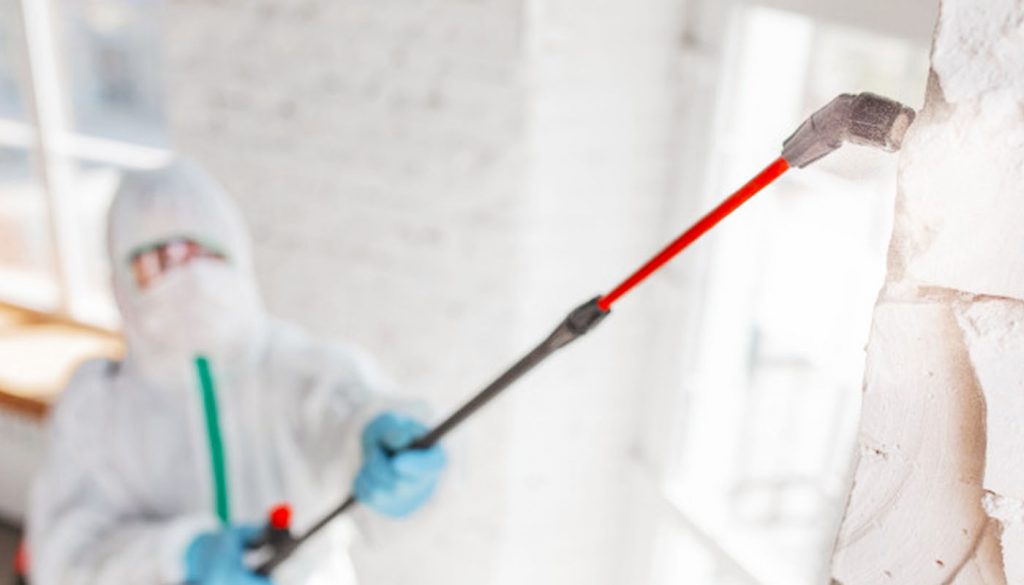
There are two types of fumigation in the market that consumers can do at home. You can choose to use thermal fogging machines or cold fogging machines depending on how your disinfecting solution reacts to heat.
Please note that MEDIKURIN HOCl solutions are heat sensitive and will become less effective if you use it in thermal foggers. MEDIKURIN Air Mist for Humidifiers, for example, can be used in a cold fogging machine to have the same effect as when using it in a humidifying machine. Some of our clients have even reported our solution not only helps give them a peace of mind when returning for work, but one session had also helped remove their musty carpeted office smell, all in just a few hours.
All in all, we hope our article has helped you learn a little more about non-alcohol disinfectant solutions.
Nowadays, Quats (like Benzalkonium Chloride), and Hypochlorous Acid are two effective disinfectant solutions you can purchase online or over the counter. As these solutions are becoming part of the consumer’s disinfection routines, we want to make sure these industrial disinfectants aren’t misused.
In short, you should remember Quat-based disinfectants like Benzalkonium Chloride solutions are best for surface use only. Using them near your eyes or on your skin can irritate you. Consider using MEDIKURIN’s range of disinfectants and sanitizers that have been specially formulated to kill germs on most surfaces while still being safe on skin and eco-friendly.
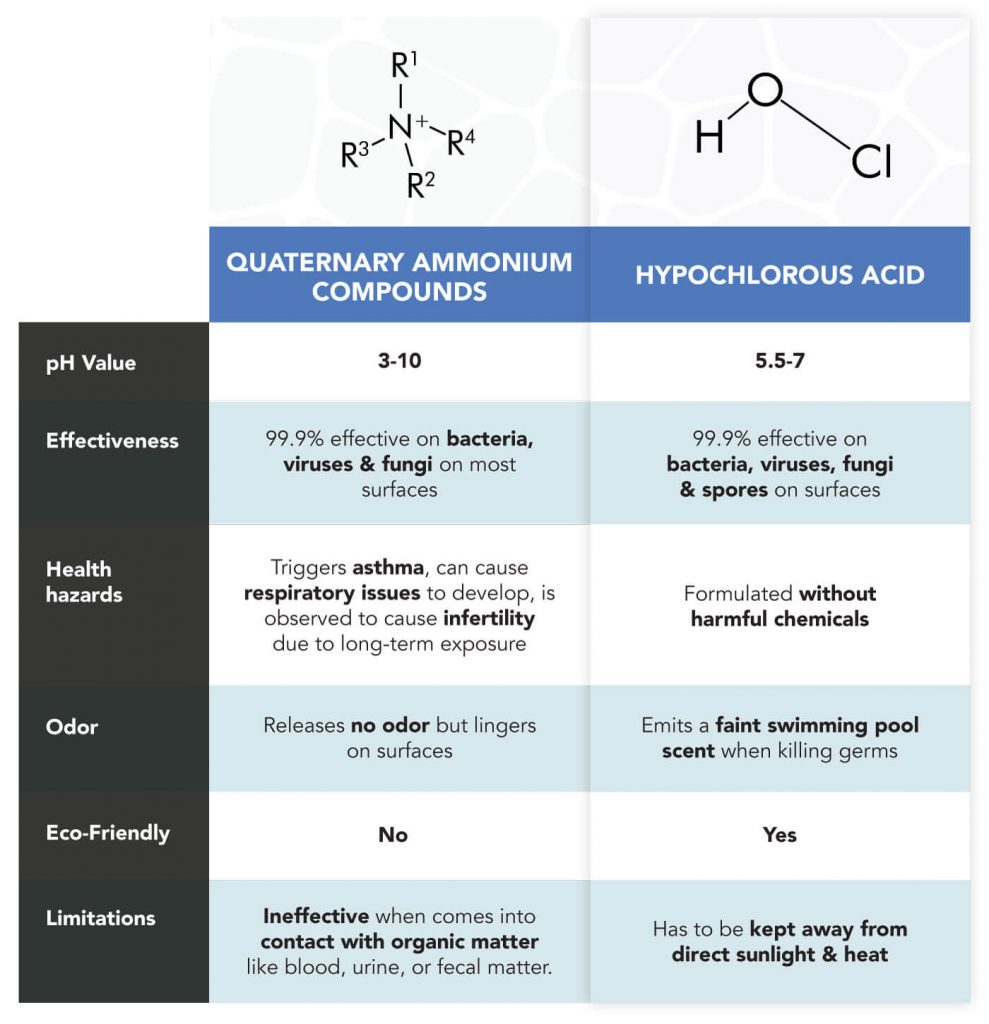
Quats and HOCl might share some similar traits, but at the end of the day, you decide which solution you would rather use around loved ones.
Contact us to get MEDIKURIN disinfectants and sanitizers for your home, office, or business.
